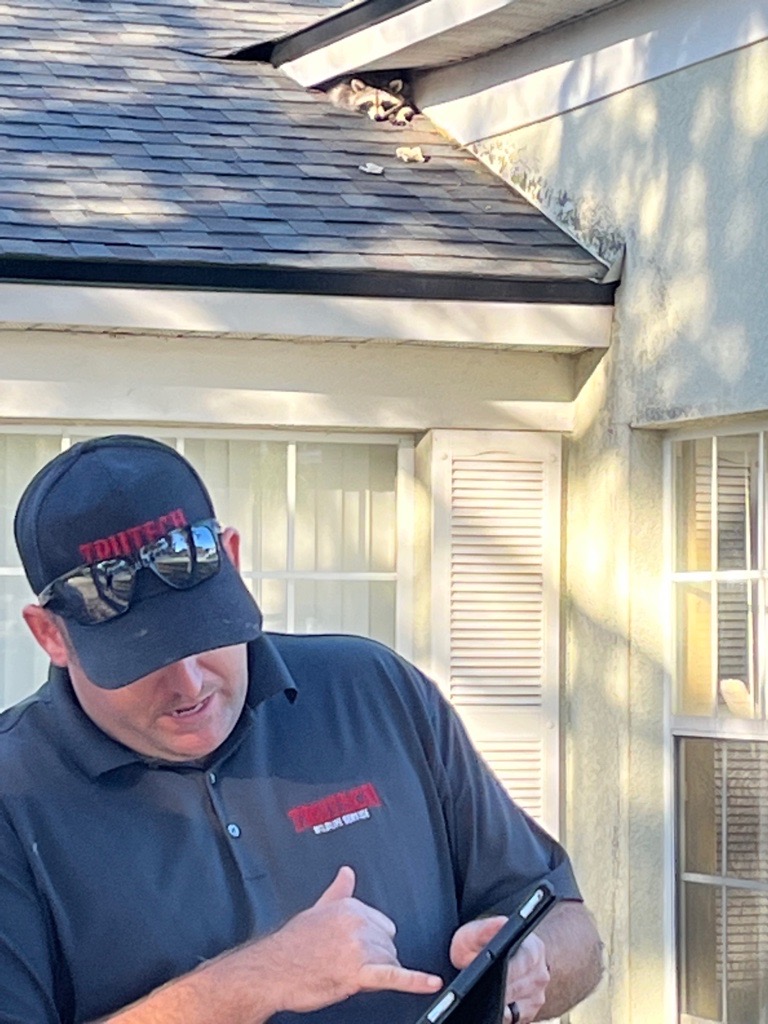Raccoons are usually gray with black and white markings. The most common way that raccoons are identified are by their bushy, striped tails and mask-like band of black fur under their eyes. Raccoons are skilled survivors and have adapted to a variety of habitats.
They’re often found near water in wooded areas and backyards. In areas with higher human populations, raccoons commonly use man-made shelters, including attics, chimneys, barns, and garages.
Raccoons can be found year-round. You will most likely experience a raccoon in your home or on your property during the spring. In the spring, raccoons typically give birth and only have 1 liter per year. During this time, many momma raccoons will seek shelter for their cubs in safe, warm places like an attic.
In the winter, raccoons do not hibernate. Raccoons seek the comfort of their dens. Attics are warm and dry making them ideal winter denning locations for raccoons.
Table of Contents
Signs of a Raccoon Problem
It is rare to actually see raccoons because the pests are nocturnal. The critter leaves plenty of evidence. When raccoons decide to den on your property, they can cause significant property damage.
You will most likely hear a raccoon in your attic at night because they are nocturnal. Raccoons make noises when they move through your house and have over 200 different vocalizations.
You will typically hear loud thumping sounds. On the other hand, if babies are present, you may see momma raccoons foraging for food during the daytime. In this case, you may hear crying/whimpering noises during the day, too.
Raccoon movement noises:
- thumping
- running
- rustling
- scratching
- scurrying
Raccoon vocalizations include:
- purring
- chittering
- growling
- snarling
- hissing
- whimpering
- screeching
Raccoon poop is tubular in shape, have blunted ends, and are usually dark in color, though coloration is subject to change depending on what the animal has recently consumed.
Raccoons create separate latrine sites. They consistently return to these locations, which are commonly found on roofs, in attics, wood piles, haylofts, crawlspaces, garages and on or under decks.
Raccoons have five toes on each foot, so their tracks resemble the handprints of a small child. Front footprints are about two and a half inches long, and hind prints often measure up to three and a half inches. Raccoon tracks usually appear in pairs, as their hind foot moves beside the opposite forefoot while walking.
How to Get Rid of Raccoons
Successful raccoon control includes trapping, removing, relocating, identifying entry points, exclusion repairs, cleaning, and disinfecting. Each state has its own regulations and ordinances regarding raccoon trapping and release. In most cases, it is more cost-effective to hire a professional.
Raccoons in the Attic
If you have a raccoon in your attic, be very cautious if you decide to enter. It is likely females are present with juveniles. When raccoons feel cornered, they can become very aggressive, especially when a momma is protecting her cubs.
The first step is to inspect if raccoon babies are present
- If babies are not present, Strategically place a live trap to remove the raccoon. Once the attic is raccoon-free, seal all entry points, & sanitize the attic.
- If babies are present in an attic, Natural raccoon repellents that have the scent of male raccoon urine can work. During a raccoon’s birthing period, she is highly protective of her cubs, and male raccoons are dangerous during this time. So, if a female raccoon smells the scent of a male raccoon, she will likely relocate urgently with her cubs.
Note: Every situation is unique, and this method does not work 100% of the time, but Trutech guarantees a raccoon-free home.
How to Get Rid Raccoons in the Attic
If you are going to try live trapping a raccoon on your own here are some things to keep in mind:
- Your state’s laws.
- Raccoons will cause a great amount of destruction, especially when startled.
- Raccoons are a rabies vector species and their waste carries roundworm, Salmonella, and other diseases.
Place traps in an area where raccoons frequent. Because you need to check a trap regularly, it needs to be placed in a somewhat accessible location. Raccoons have extremely dexterous front paws with five long, tapered fingers and long nails. Raccoons destroy everything they can get their hands on when trapped.
- Do not place a trap on the roof. A shingle roof will likely be destroyed, and unless the trap can be stabilized, it is not safe for a raccoon to be in a trap on a pitched roof.
- Keep 12 inches around trap clear. Raccoons can damage ductwork, insulation, stored items, drywall, electrical lines, water lines, etc.
- Be mindful when setting a trap on the ground. The trap needs to be secured and away from anything you do not want to be destroyed. The lawn underneath the trap and close-by flowers or shrubbery will likely be damaged if accessible. Place the trap on concrete or dirt if possible. If not, place the trap in a space that is invaluable and does not have any valuable surroundings within arm’s reach.
Raccoons in Walls
Raccoons can either climb down or fall down wall cavities. Raccoons inside walls can be difficult to remove. Raccoons that fell down might be trapped, and a trapped raccoon might die if ignored.
Usually you will need to find precisely where the raccoon is and then cut through your wall to remove the raccoon.
Raccoon in the Chimney
Raccoons commonly nest in chimneys because it resembles a raccoon’s natural den location the hollow of a tree.
While many homeowners place specialized caps on their smokestacks for this very reason, raccoons are able to gain entry by removing them manually. As such, noticing a cap out of place points to the presence of raccoons in chimneys. Chattering, scratching, and rustling coming from chimney flues also serve as signs of infestations. Sightings of raccoons in chimneys or on rooftops should also incite concern.
How to Get a Raccoon Out of a Chimney
If a raccoon is in your chimney, do not try to smoke it out. Also, do not attempt to catch the raccoon by opening the fireplace. This gives the raccoon access to the rest of your house.
The most effective method of control is to call a professional. Once the pests is removed, the experts can clean the chimney and remove any nesting materials. Finally, seal the chimney with a spark arrester or chimney cap.
How to Get Rid of Raccoons from Crawlspace
In the springtime, female raccoons are looking for a safe and quiet place to give birth and raise their young. Crawlspaces offer the perfect environment for this, being warm and dry and away from potential predators. The raccoon family will then stay there through the summer, until their young are big enough to lessons their reliance on the mother. Raccoons may also return to a crawlspace in the winter if they need a place to escape the cold temperatures outside.
Raccoons use their sharp claws and teeth to tear open screen and box vents, creating access points to the secure areas of a home. Once inside, they make their nests, eat stored food, and create a mess of handiwork. Taking action to secure or trap the raccoons is essential for living peacefully and safely in your home.
Raccoon Control in a Crawlspace
Closing access points like screen vents is the most effective raccoon control.
If a raccoon already dens there, The most effective way to get rid of a raccoon from your crawlspace is to trap it. When it comes to luring a raccoon into a trap, fish or chicken are the best baits to use. The bait should be placed at the back of the trap in order to ensure that the raccoon has to go all the way in before it can access it
Deterrents such as lights, loud sounds, or smells might scare away the raccoon temporarily. You will need to repair any raccoon entry points for a long term solution.
Raccoons Under the House or Deck
Porches, decks and under your house provide shelter for a raccoon. Female raccoons will create a den under your deck to give birth.
How to Get Rid of Raccoons Under the House
If there are raccoon babies under your house, raccoon eviction spray might work. Once the raccoons are gone, you will need to seal the area or raccoons will return.
If raccoon eviction spray does not work, use a cage trap to remove the mother. You can remove the babies by hand. Place them in a cardboard box with a towel. Release the mother on your property and leave the box outside. She will return to them.
Raccoons on the Roof
Once a raccoon gains access to your roof, the next step is getting into your attic. Raccoons often access rooftops by climbing vinyl siding, trees, and drainage pipes.
Their presence is marked by:
- Smudges and hair on downspouts
- Claw marks on the trunks of trees
- 3- to 5-inch droppings in the same general area on the roof
- Purring, growling, chittering, or scratching
- Damaged attic vents or roofing
- Hair, smudge marks or actual sighting in chimney
Raccoons on roofs can cause significant damage to your property. Females are known to destroy soffits, fascia boards, shingles, vents, and insulation to establish denning sites. Once a raccoon creates or enlarges a hole in the rooftop, it becomes an easy pathway to the attic.
Get Raccoons Off the Roof
Raccoons will not nest on your roof. So if you limit accessibility to your roof, you can solve the raccoon problem.
- Trim trees and branches to eliminate access to your roof
- Install metal sheeting at the corner of your house so raccoons cannot climb up your house
How to Get Raccoons Out of Your Yard
Raccoons like all other animals are seeking food, water, and shelter. If you don’t want raccoons on your property, do not create an environment for them.
Raccoons are strong and have very dexterous hands so be sure to keep your garbage can tightly shut and inaccessible. If you are having trouble with a raccoon continuously rummaging through your trash, consider tying your garbage can shut.
If your pet eats outside, please ensure you remove their dish and water bowl after they are finished eating. If your family has a meal outside, be sure to take all used plates, utensils, and condiments inside and ensure the space is crumb-free.
Be very cautious about the location you choose. If possible, put only one day’s worth of seed in the feeder at a time.
If a raccoon knows there is a food source available, you will have a return visitor who will likely bring other guests.
Garages provide generous shelter space for raccoons. Many people will leave their garage doors open to provide shelter for outdoor animals, like cats, but the destruction from a raccoon would make you change your mind. Once a raccoon enters your garage, it can cause enough destruction to enter your living space. Or you may already have openings/holes in the walls of your garage which a raccoon will utilize to gain access to your home.
What Will Keep Raccoons Away?
You can keep raccoons away. Habitat modifications is an effective, all-natural raccoon control.
If you see a raccoon on your property, it is possible that that raccoon will be seeking shelter on your property as well.
Prevent raccoons from entering your home by following these tips:
- Trim any trees that provide access to your roof.
- Keep your yard clear of debris that can be utilized as nesting material.
- Inspect your property for any potential entry points. If any entry points are found, have them repaired.
- If you have a chimney, ensure it has a sturdy, tight-fitting cap.
- If you have a crawlspace, ensure the crawlspace door fits tightly.
- Keep your doors closed.
- If you have a doggy door or cat door, ensure it is inaccessible after dark.
- If you have a pool, always keep it covered after dark if you are not using it. You do not want a raccoon to defecate in your pool as their feces contain harmful bacteria.
Do Raccoon Repellents Work?
Raccoon repellents are a temporary raccoon control method. Raccoons will become familiar with store-bought raccoon repellents and learn to live with them. Repellents are best used to scare away a raccoon before installing exclusion devices.
While in the field, we come across many people using mothballs to try to deter various animals. Mothballs are toxic to both humans and animals. It is not safe to use mothballs on your property as you may harm a child, pet, or other untargeted animals unintentionally.
Raccoon waste carries bacteria that you do not want to breathe in. You will need to wear proper PPE for the job. Respirators and animal handling gloves should always be used.
After raccoon removal, sanitization is highly recommended to remove any bacteria associated with the animals’ waste.
How Does Trutech Get Rid of Raccoons?
Supplies:
- 10-gauge galvanized hardware mesh
- 10x12x32 inch cage trap
- Chimney caps
- Electric fences
Tools:
- Ladder
- flashlight
- Respirator
- Thick leather gloves
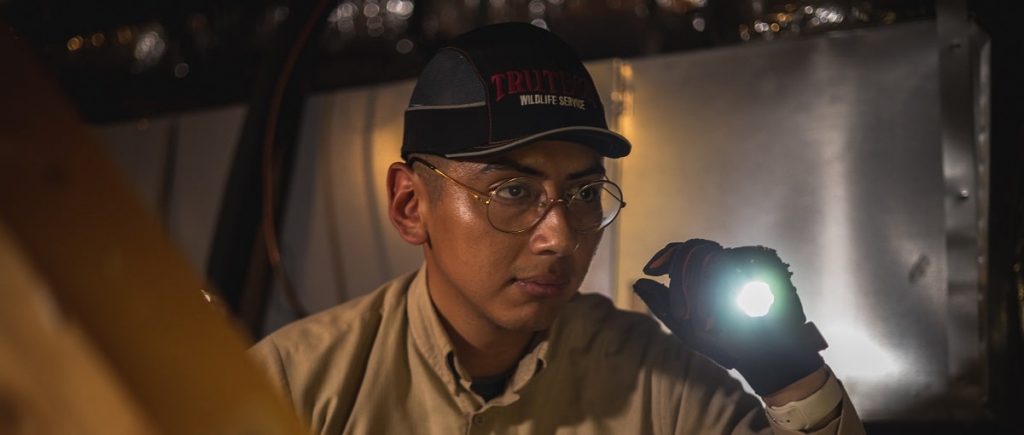
Step 1: Raccoon Inspection
At Trutech, we will inspect your entire house from top to bottom. We climb on the roof, check the chimney, and crawl under the house. We look for signs such as footprints on, in, or around your home, large openings leading to the attic or crawl space, and raccoon poop. During the inspection we identify damage caused by raccoons.
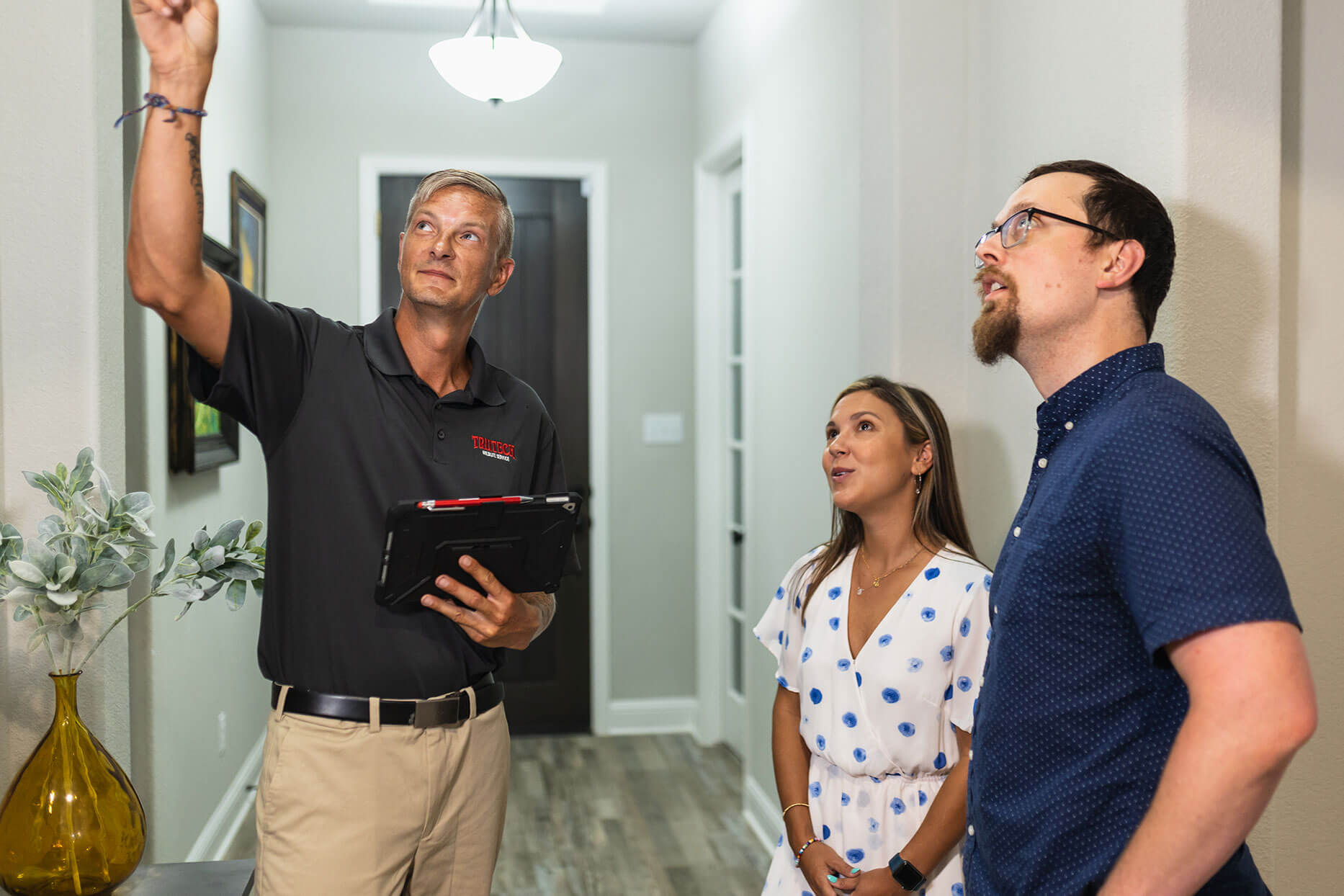
Step 2: Raccoon Control
Each situation is unique. We develop a custom raccoon control plan for each customer. We include factors such as what is the size of the house, how long has the infestation lasted, what is the age of the home, and where the raccoons live.
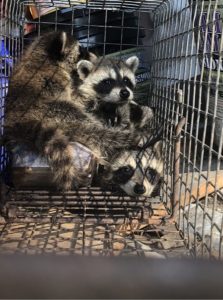
Step 3: Raccoon Trapping
Live trapping is the most effective and humane way to remove a raccoon. Direct capture is not commonly used because raccoons are a rabies vector species. If legal, a healthy trapped raccoon will be relocated with written permission. When babies are removed from an attic, our wildlife specialists seek help from a local wildlife rehabilitation center.
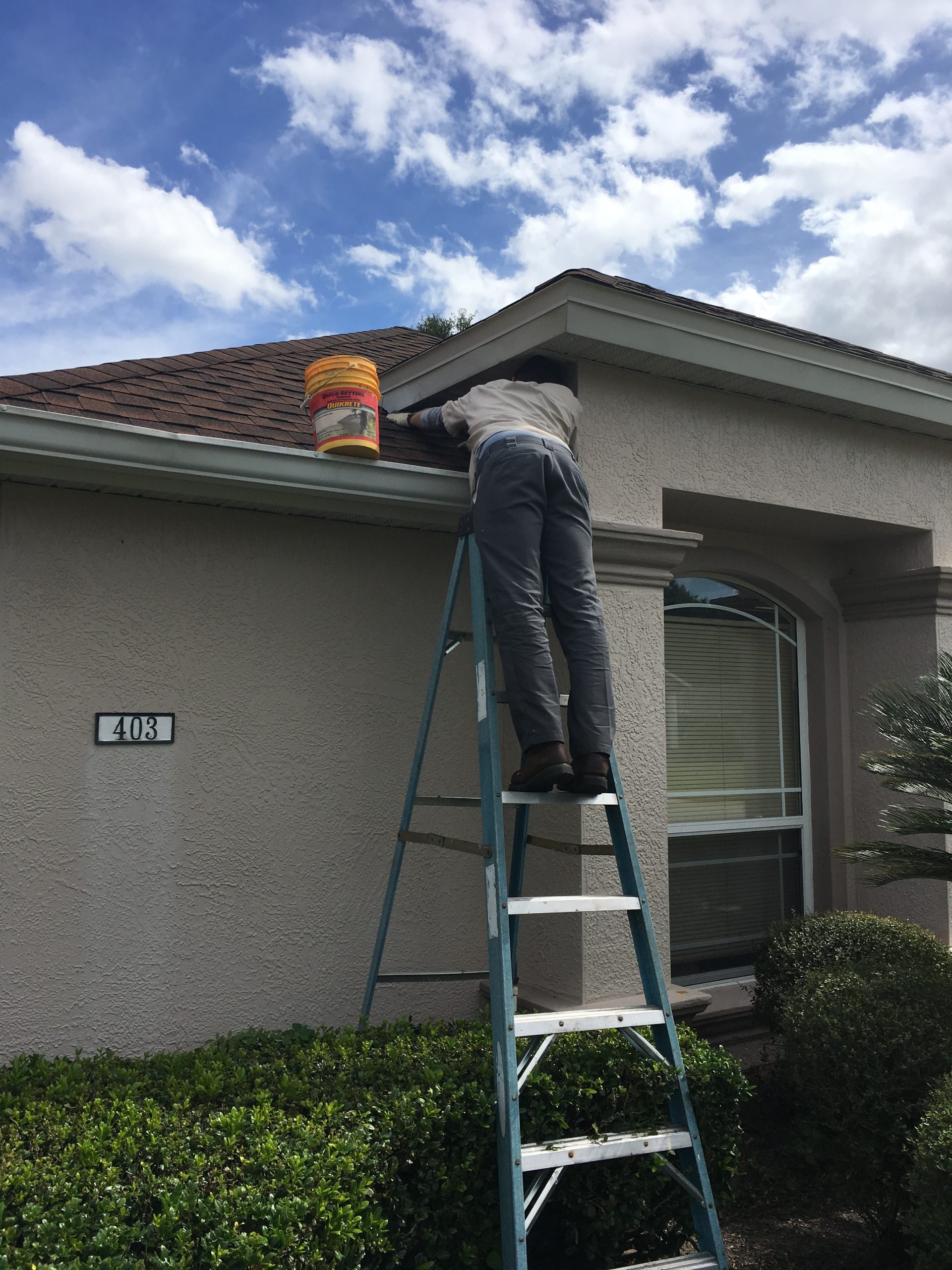
Step 4: Exclusion
After raccoon removal, it is imperative to seal all entry points to prevent future entry. Ensuring you don’t create a home for raccoons outside your property will also help prevent attracting raccoons.
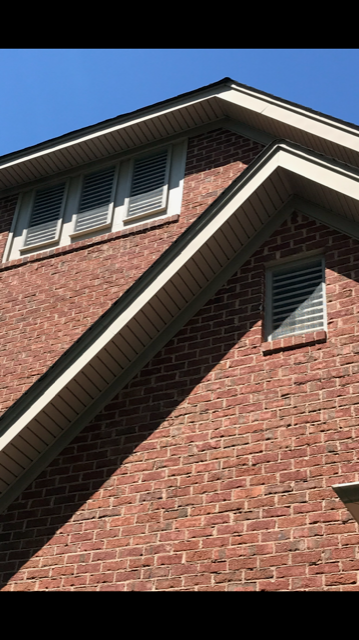
Step 5: Restoration
After your home is secure, it is vital to restore your home. Raccoons might infect your family with diseases or parasites. Attic invaders leave behind waste, contaminating insulation and the air within your home. Trutech offers attic clean-up and sanitization services to rid your home of animal waste and disinfect affected areas of your home.
Since the population of raccoons continues to increase, the most effective resolution for your raccoon issue is to control the population around your home. Trutech offers recurring programs to safely and humanely keep your property raccoon-free. During our services, we always check for new signs of activity and provide a thorough exterior home inspection.
Raccoons are very smart and therefore can be very challenging to deal with. As a raccoon invasion persists, the amount of destruction will continue to rise. For guaranteed peace of mind solution, call your Trutech Wildlife Professional today.


